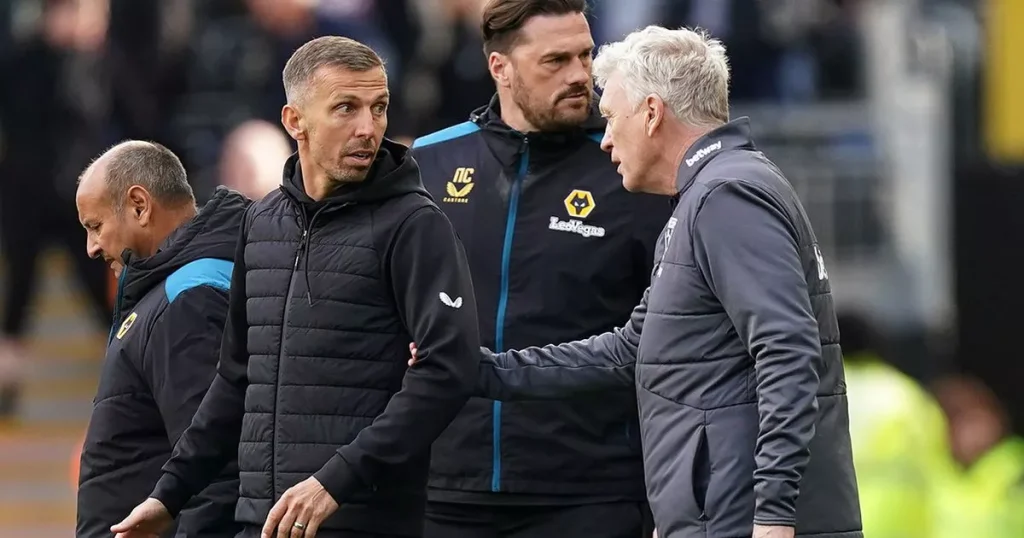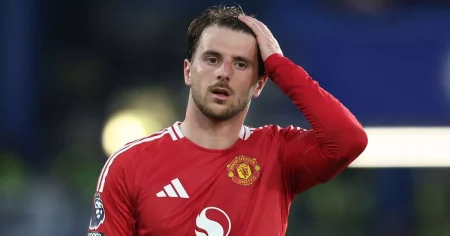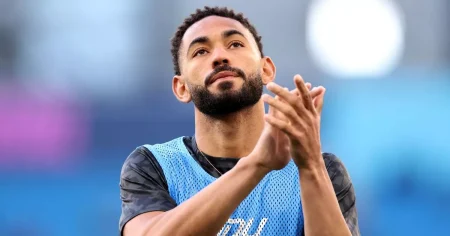Wolverhampton Wanderers faced a controversial VAR decision in their match against West Ham, where a late equaliser by Max Kilman was disallowed. Both teams had goals ruled out in the game, with West Ham coming from behind to win. After the match, Hammers manager David Moyes and Wolves assistant manager Gary O’Neil had differing opinions on the late controversy. O’Neil claimed that Moyes and goalkeeper Lukasz Fabianski agreed that the goal should have stood, while Moyes publicly stated that it was probably the right decision. Wolves have faced similar contentious decisions earlier in the season, including being denied a late penalty against Manchester United and Fulham. O’Neil highlighted various instances where he believed the officials had made mistakes in those games.
The contentious decision in the Wolves vs West Ham match sparked conversations about VAR and the role of referees in ensuring fair play. O’Neil called the decision to disallow Kilman’s goal one of the worst he had ever witnessed. Moyes, while sympathizing with O’Neil, gave a different explanation for why the goal was ruled out, citing a penalty call against West Ham in the first half as a harsh decision against his team. The game saw both teams convert penalties before Ward-Prowse scored what turned out to be the winning goal. The aftermath of the match highlighted the subjectivity of VAR decisions and the impact they can have on the outcome of games.
The Wolves assistant manager reiterated his frustration with VAR and how it has affected his team’s matches this season. O’Neil mentioned receiving an apology from PGMOL after a denied penalty against Manchester United and a wrong call by the referee in a previous game against Fulham. He detailed several instances where he believed the officials had made incorrect decisions that had a direct impact on the game’s result. The controversy surrounding VAR and refereeing decisions has been a recurring theme in the Premier League, with fans and officials calling for more transparency and consistency in the decision-making process.
The differing views between Moyes and O’Neil highlighted the complexities of interpreting VAR decisions and the subjectivity involved in analyzing referee calls. While O’Neil and Moyes had contrasting opinions on the disallowed goal, it showcased the challenges faced by managers, players, and officials in understanding and accepting VAR outcomes. The debate around VAR and its impact on the game continues to be a hot topic in football, with calls for improvements and more clarity in the decision-making process. The controversial incident in the Wolves vs West Ham game emphasized the need for discussions and reforms to ensure fairness and accuracy in officiating Premier League matches.
Overall, the contentious VAR decision in the Wolves vs West Ham match added to the ongoing debate surrounding technology in football and the role of referees. The conflicting perspectives of O’Neil and Moyes highlighted the challenges of interpreting VAR decisions and the impact they can have on the outcome of games. The incident underlined the need for greater transparency, consistency, and accountability in how VAR is implemented and how decisions are made. The controversy surrounding the match underscored the complexities of modern football officiating and the ongoing efforts to improve the fairness and accuracy of the game.















